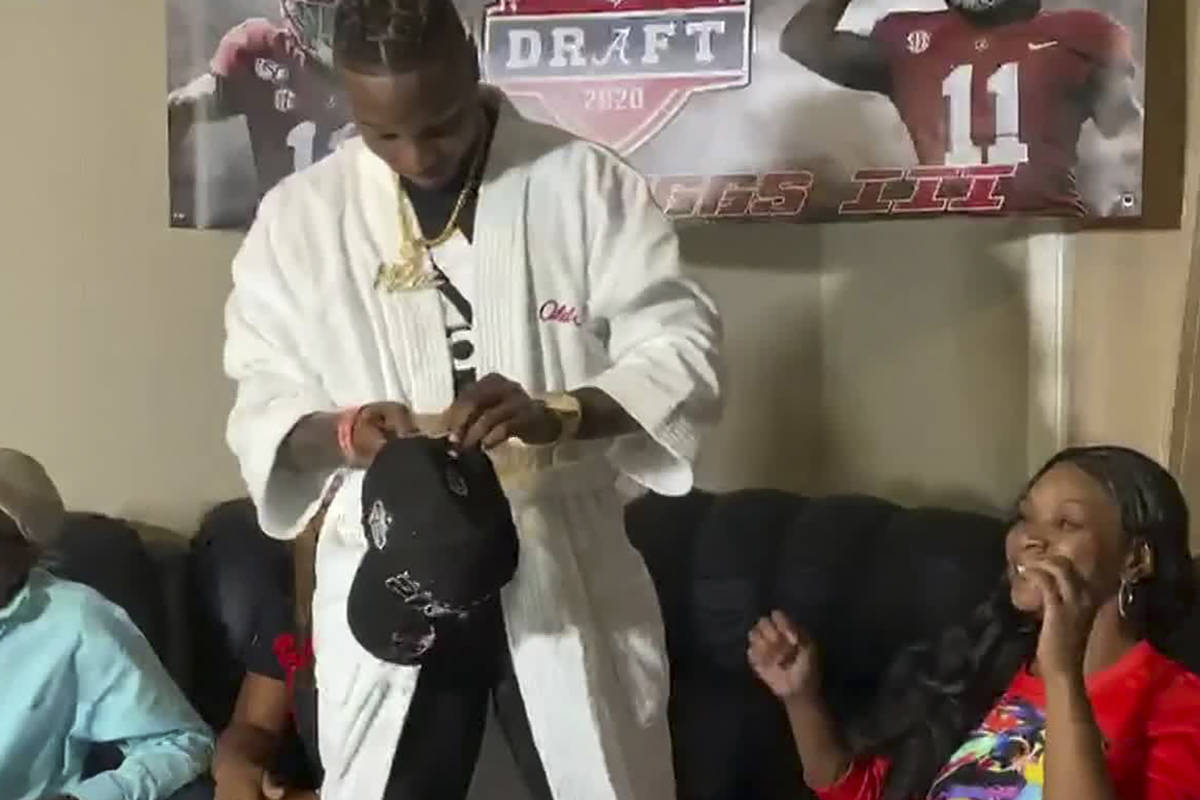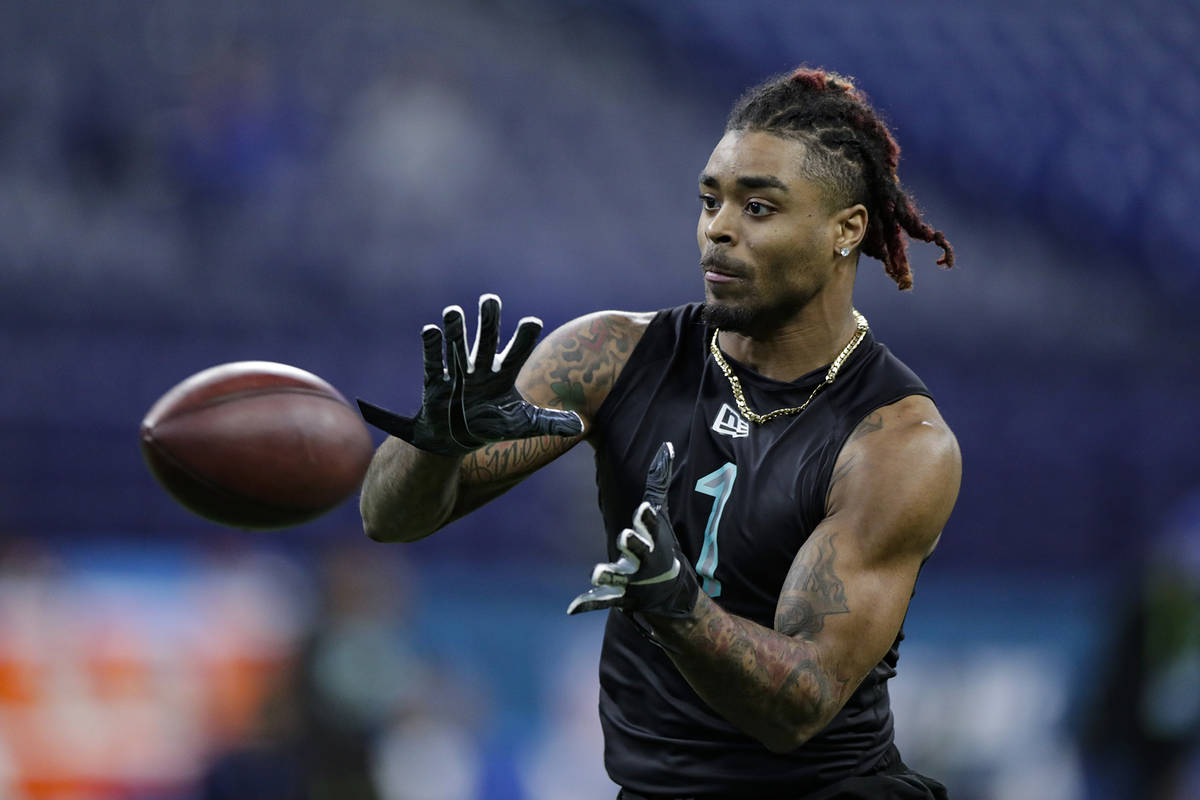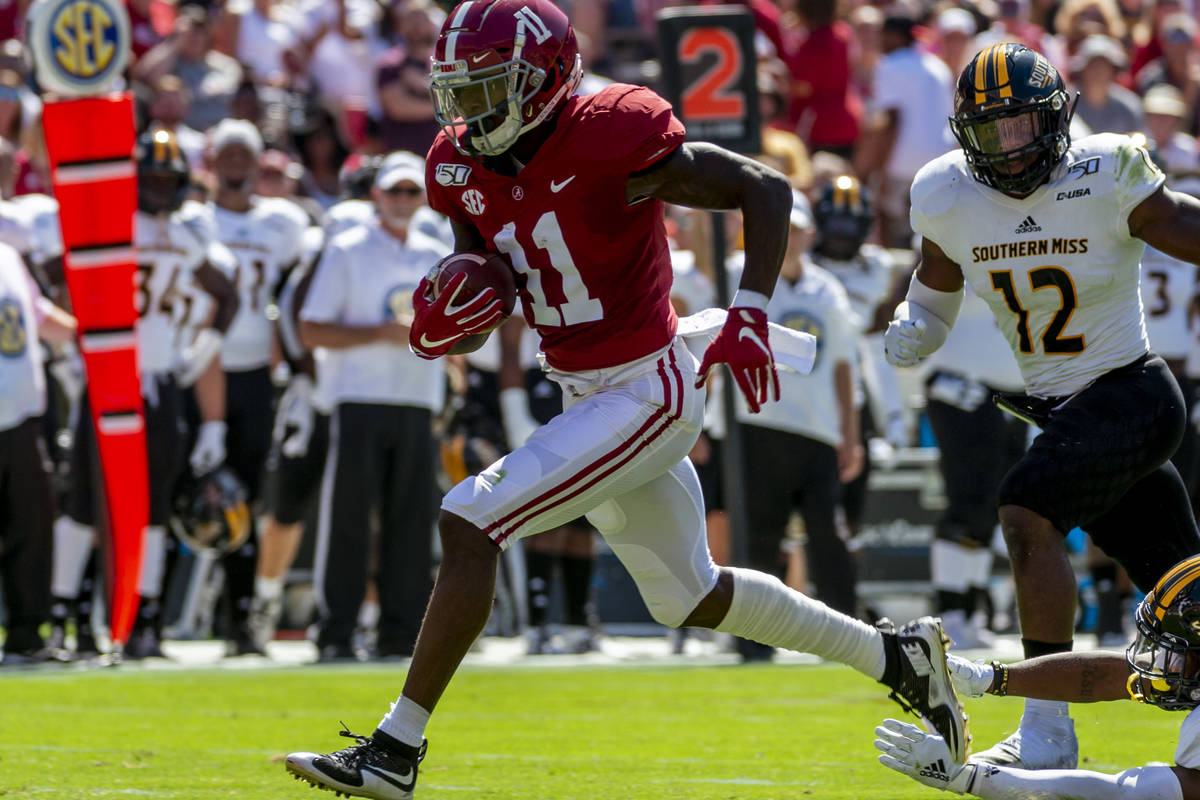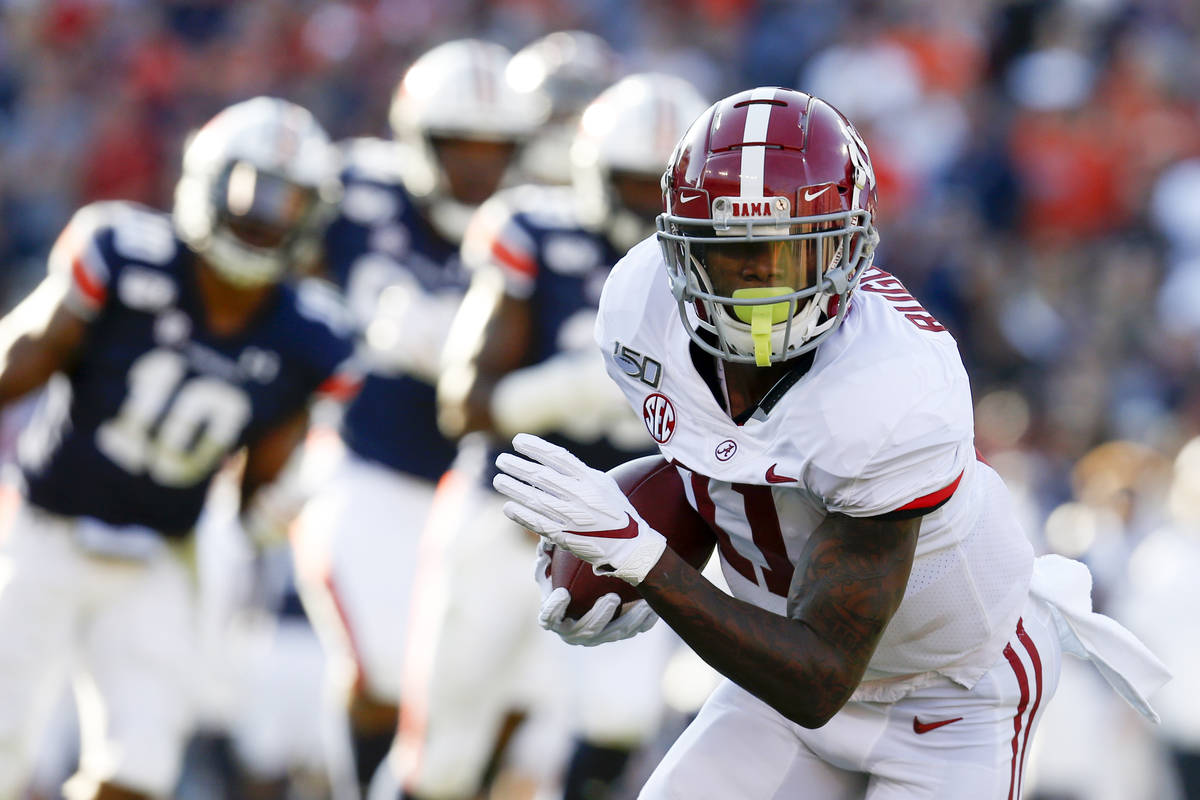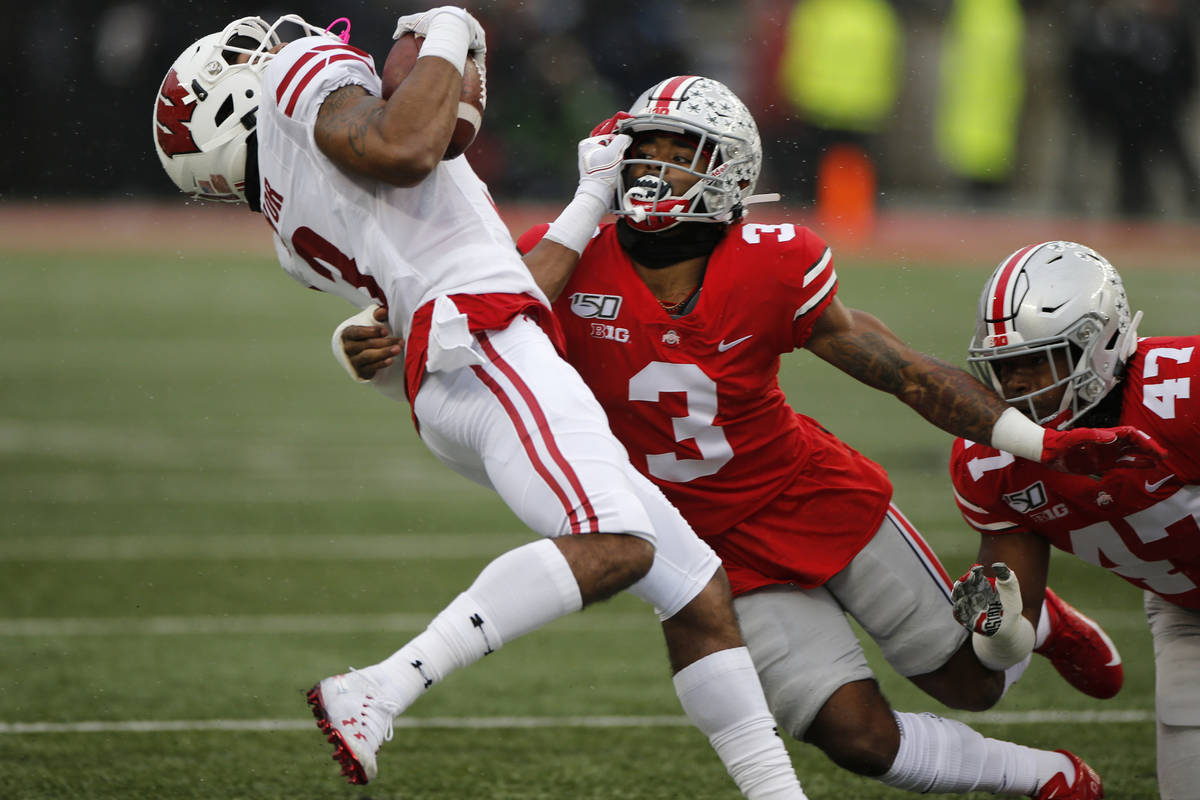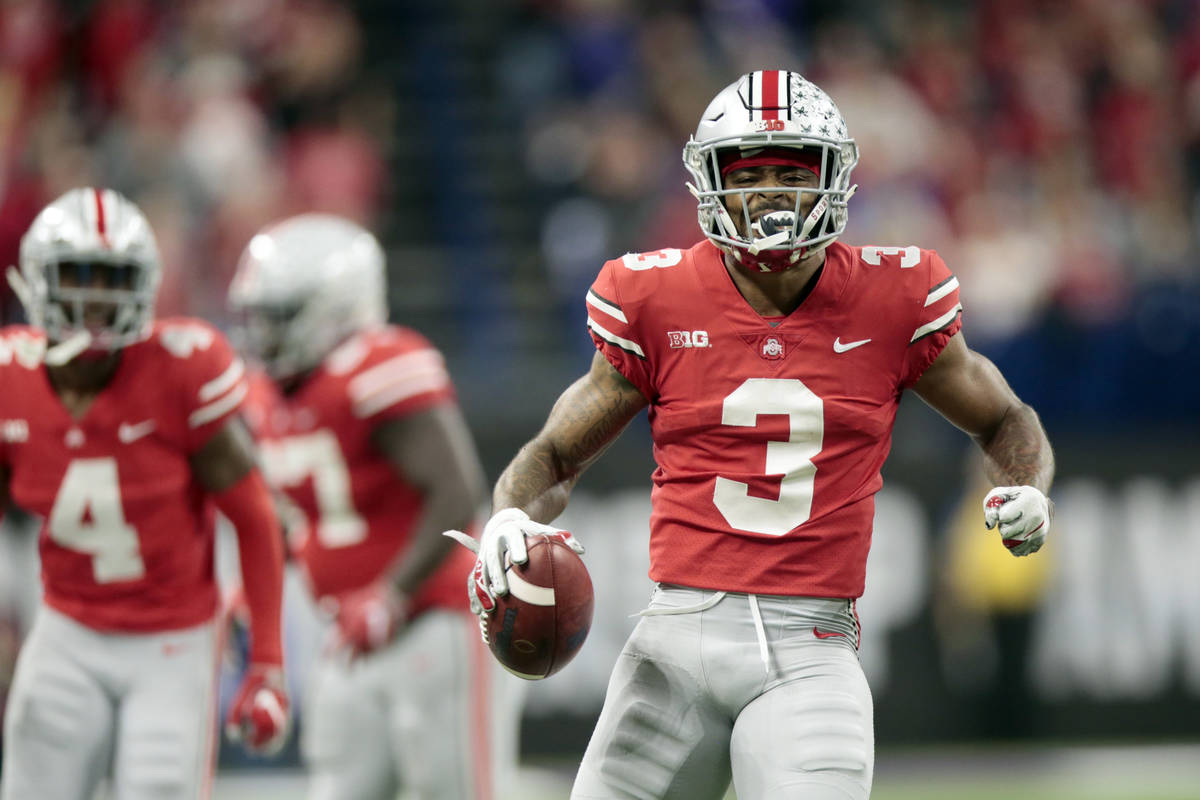Raiders draft Henry Ruggs, Damon Arnette in first round
Participating in their first draft as Las Vegas’ NFL team, the Raiders on Thursday filled their two biggest needs with their first two selections.
But not without pulling one mild surprise with the pick of Alabama wide receiver Henry Ruggs III and one very big one with the addition of Ohio State cornerback Damon Arnette.
Not surprisingly, the Raiders addressed wide receiver as early as possible, using the 12th overall pick to select Ruggs, who burned a 4.27 40-yard dash at the NFL scouting combine and gives quarterback Derek Carr and the Raiders the deep-ball threat they have been sorely missing.
A two-year starter and three-year contributor for Alabama, Ruggs finished his career with 98 catches for 1,716 yards and 24 touchdowns.
Arnette, on the other hand, was the stunner, not necessarily by position but by identity and ranking. He wasn’t considered a first-round talent by most pundits, and depending on the source, he was ranked at the lower end of the top-10 at his position.
The Raiders had their own conclusion, though, and were enamored with his toughness and tenacity. Even with high-rated corners like LSU’s Kristain Fulton and Alabama’s Trevon Diggs still on the board when the 19th pick arrived, they opted for Arnette, a choice only they could have seen coming.
From a position and skill-set perspective, the pick of Ruggs made sense. But the Raiders’ decision to bypass Alabama teammate Jerry Jeudy and Oklahoma playmaker CeeDee Lamb, the two consensus top wide receivers in the draft, was a bit of a surprise.
Ruggs said he wasn’t concerned about when he would be drafted, perhaps having resigned himself to the perceived pecking order. “It didn’t matter,” he said. “I was just waiting to see where I was going to go, waiting to hear my name called.”
It was assumed the Raiders would pick among one or two of the top three receivers, Ruggs included, when their first pick arrived. Getting to choose among all three seemed a long shot, yet that was the situation.
Of the three, Ruggs was the least productive in college and considered the most raw as a route runner and the least adept at getting off the line of scrimmage against press coverage. For those reasons, he was always considered a distant third to Lamb and Jeudy.
But not in the Raiders’ draft room, where his speed, athletic ability and ceiling gave him an edge over the other two. Right off the bat, he will play on the perimeter alongside slot threat Hunter Renfrow, emerging tight end Darren Waller and, if healthy, wide receiver Tyrell Williams.
In some ways, he will get more chances with the Raiders than he did at Alabama, where he had to share the playbook with Jeudy and others
“It definitely kind of held me back,” Ruggs said of having to share the load. “Those guys had to make their plays, too. We had to share the ball. Share the love.”
Long pigeonholed as the faster but not as polished receiver among the top three, Ruggs is eager to expand his game in the NFL.
“I feel I could definitely show (my versatility) at any time,” Ruggs said. “Of course, my tape speaks for itself. But when I get out on the field, I can show that I can do more than just run.”
The presence of Ruggs and the concern he creates with his speed in the pass game and as a ball carrier is expected to draw defensive focus away from the Raiders’ other playmakers and potentially open the field for them.
Most importantly, he creates something Carr has not had in his six seasons with the Raiders: An offense that in Ruggs includes a perimeter weapon who can stretch the defense and be a threat from anywhere on the field.
It is on Carr to take it from here. But for the first time in his career, he has the necessary weapons to take the Raiders’ offense to another level.
Contact Vincent Bonsignore at vbonsignore@reviewjournal.com. Follow @VinnyBonsignore onTwitter.



